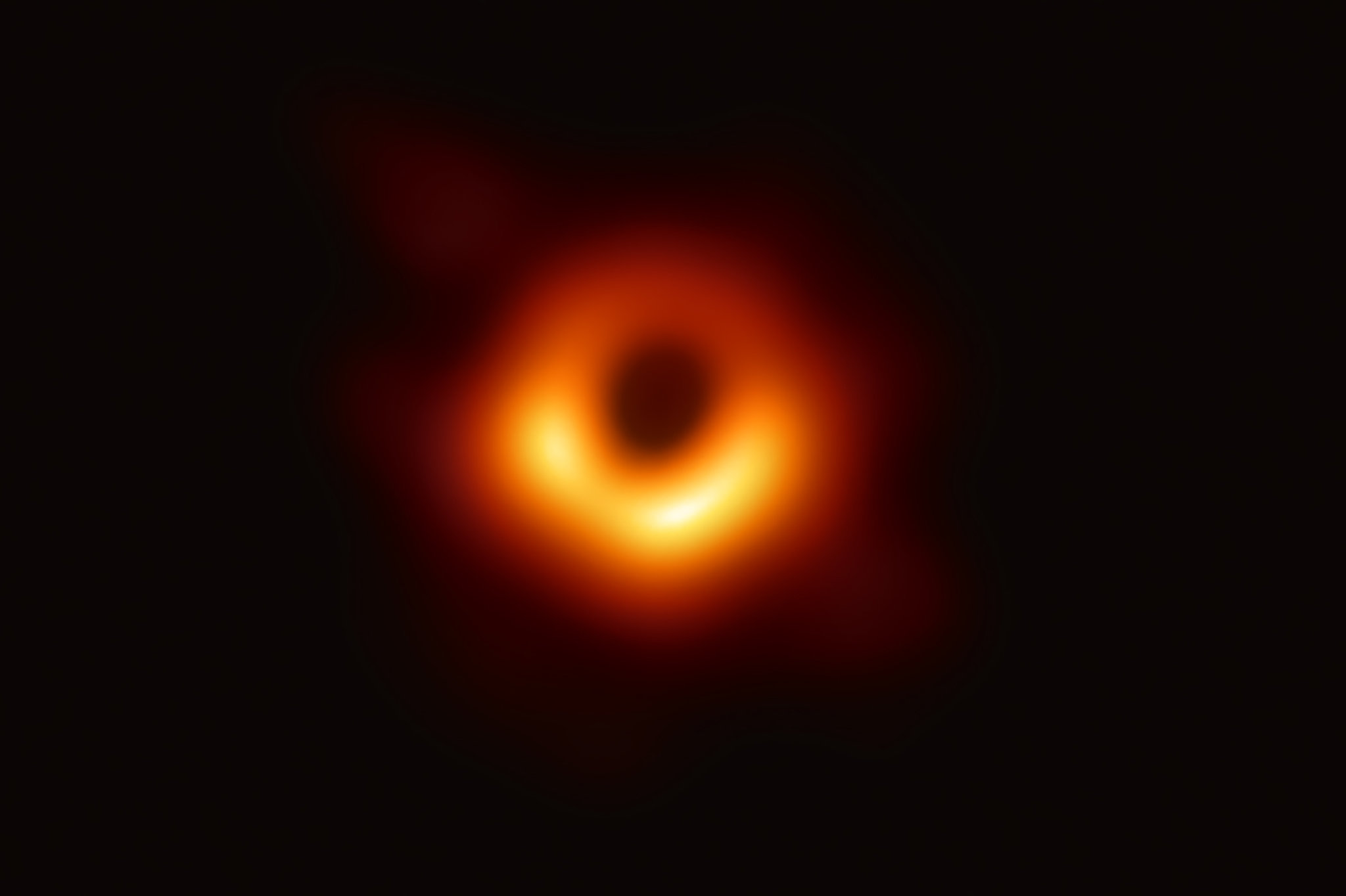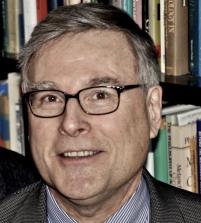On Black Holes and Human Significance
Events from recent weeks raise questions about the connection between size (physical or otherwise) and human significance
 Events from recent weeks raise questions about the connection between size (physical or otherwise) and human significance. Of course, there are homey sayings like “good things come in small packages” or “bigger is better” that, truth be told, experience usually invalidates. Good things don’t always come in small packages, or even in packages at all. Bigger is not always better, e.g., wars, famines, or hurricanes. But still we are led to ponder: is the significance of our lives bound to size?
Events from recent weeks raise questions about the connection between size (physical or otherwise) and human significance. Of course, there are homey sayings like “good things come in small packages” or “bigger is better” that, truth be told, experience usually invalidates. Good things don’t always come in small packages, or even in packages at all. Bigger is not always better, e.g., wars, famines, or hurricanes. But still we are led to ponder: is the significance of our lives bound to size?
It is still the case, at least in contemporary American culture, that size matters. But why and how does it matter? Consider one stunning event from the last few weeks—scientists capturing the first images of a black hole. The mysterious and tremendous (thanks, Rudolf Otto) black hole from the galaxy Messier 87—captured in a blurry-yet-awe-inspiring image by the Event Horizon Telescope Collaboration—is, well, very large and some fifty million light-years away. Eight telescopes around the planet were used to photograph it, an effort that included the work of researchers at The University of Chicago. A New York Times article (April 10, 2019) described a black hole as “a cosmic abyss so deep and dense that not even light can escape it.” And the HuffPost (April 11, 2019) noted that “The revolutionary image went viral in an instant, as did a photo of Katie Bouman, the 29-year-old who is partly responsible for making the astronomical image happen.” It is a significant, history-making event: a young woman in science, the first glimpse of a phenomenon long sought and that has widespread cultural currency (think Star Trek and sci-fi movies), and a possibility that troubled Albert Einstein even though his theories predicted its shape. Here we have been given insight into one of the most powerful forces in the universe where light and matter cannot escape its deadly grasp. But where, Sightings readers might wonder, is religion in this admittedly stunning scientific discovery?
Again, with thanks to Rudolf Otto and his book The Idea of the Holy (1917, English 1923), we might explore how the image of the black hole attracts us and yet repels us, fills us with a sublime sense of the immensity of the universe and the smallness and seeming insignificance of human existence. Size and human significance might be linked religiously through the idea of the Holy, granting that Otto’s description of religion has fallen on hard scholarly times. Size is not physical, but a vehicle, a sign, that evokes the sublime in us, taking us ecstatically beyond measurement and calculation. Size blends into significance as we undergo experiences of awe.
There are, of course, also defenders of humanity, of significance of another kind, even given our stunted physical stature. Pascal wrote in the Pensées (347) that
man is but a reed, the most feeble thing in nature, but he is a thinking reed. . . . [If] the universe were to crush him, man would still be more noble than that which killed him, because he knows that he dies. . . . All our dignity consists, then, in thought . . . Let us endeavor, then, to think well; this is the principle of morality.
Significance, in Pascal’s account, has nothing to do with physical size and, importantly for us this week, nothing to do with the fact that we will be swept out of being by uncontrollable powers in the universe, which, in the end, will leave little trace of light or matter or us. Meaning is, one supposes, still a form of the sublime, but one that Otto was at pains to avoid. For Pascal the significance of our soul is found in thinking. And even though we are feeble, small beings, we are much more moral creatures, and in this fact is found a dignity that surpasses the forces that will crush us.
Whether it’s the images from the Event Horizon Telescope, Otto and his non-ethical idea of the holy, or Pascal’s tribute to the moral dignity of a thinking reed, each of these affords a perspective on human significance. We are, clearly, in the thicket of the philosophy of language asking whether or not “size” can or cannot signify human significance, and also what kind of significance is meant: the universe, the non-ethical sublime, or moral dignity.
Passover and Holy Week provide other perspectives on the question of human significance. Passover celebrates the liberation of the children of Israel—a people who could hardly be described as “massive” or “powerful” in terms of political might or influence—from slavery in Egypt. God, so the story goes in Exodus, smites the Egyptians with plagues that culminate in the angel of death killing the firstborn of every Egyptian family. The Israelites were spared if they painted the doorposts of their homes with the blood of a spring lamb. Seeing this blood, God’s wrath passed over them and their children. God cuts the Egyptians down to size. The Spirit of the Lord ravaged the pride and tyranny of Pharaoh and liberated Israel, in the process calling them to the awesome task of being the people of God. “Seek justice, love mercy, and walk humbly with your God” (Micah 6:8) summarizes the event. The nature of human dignity is humility and is measured by justice and mercy. And while people gobbled up Easter eggs and celebrated the story of the resurrection of Jesus yesterday, here too we are forced to contemplate divine judgment and mercy, albeit in different ways than the Exodus. Human significance is terrifyingly concentrated on one man and the instruments of death posted throughout an empire. And—how surprising—it is young women who first meet the risen Christ and rush to tell his disciples. The mighty are brought low and the humble are raised up.
Turning to popular culture, in light of Holy Week and Passover, the mind goes to Johnny Cash. At the end of his career, he was a troubadour of human travail and a provocative interpreter of our spiritual situation. In the music video “God’s Gonna Cut You Down,” Cash sings while a montage of pop stars (Bono, Cheryl Crow, Keith Richards, Patti Smith, and others) appear. The chorus:
You can run on for a long time
Run on for a long time
Run on for a long time
Sooner or later God'll cut you down
Sooner or later God'll cut you down
Wisdom resides in humility. Wisdom resides in knowing that we are dust, humus, even if we are dust that breathes and therefore able to work justice and love mercy and so rise above the brutality of being. To deny this knowledge is to invite divine wrath, Cash warns. So, Pascal got the human size half-right. Yes, our dignity as thinking beings surpasses the brute forces that drag us into a cosmic abyss. And yet, as part of those forces, made from cosmic dust as astrophysicists tell us, be forewarned that there are limits to our being and dignity that we must also accept and even treasure.
We live in a society and a culture where nothing is high and great—good heavens we want to avoid any scent of the “elite” or “perfect” as if it will make one stink!—and so we have no ideals worth struggling—let along dying—for. Our public discourse is flat; our public hopes are demeaned; democracy as the ancient thinkers imagined it is a madhouse of the rabble. If nothing else, the Event Horizon images remind us that human significance derives not from our size or relative significance in the universe, but precisely in our capacity as thinking moral beings.
Image: The first image of a black hole, from the galaxy Messier 87. (Photo Credit: Event Horizon Telescope Collaboration | National Science Foundation)
 Author, William Schweiker (PhD’85), is the Edward L. Ryerson Distinguished Service Professor of Theological Ethics at the Divinity School. Author, William Schweiker (PhD’85), is the Edward L. Ryerson Distinguished Service Professor of Theological Ethics at the Divinity School. |
Sightings is edited by Joel Brown, a PhD student in Religions in America at the Divinity School. Sign up here to receive Sightings via email. You can also follow us on Facebook and Twitter.


